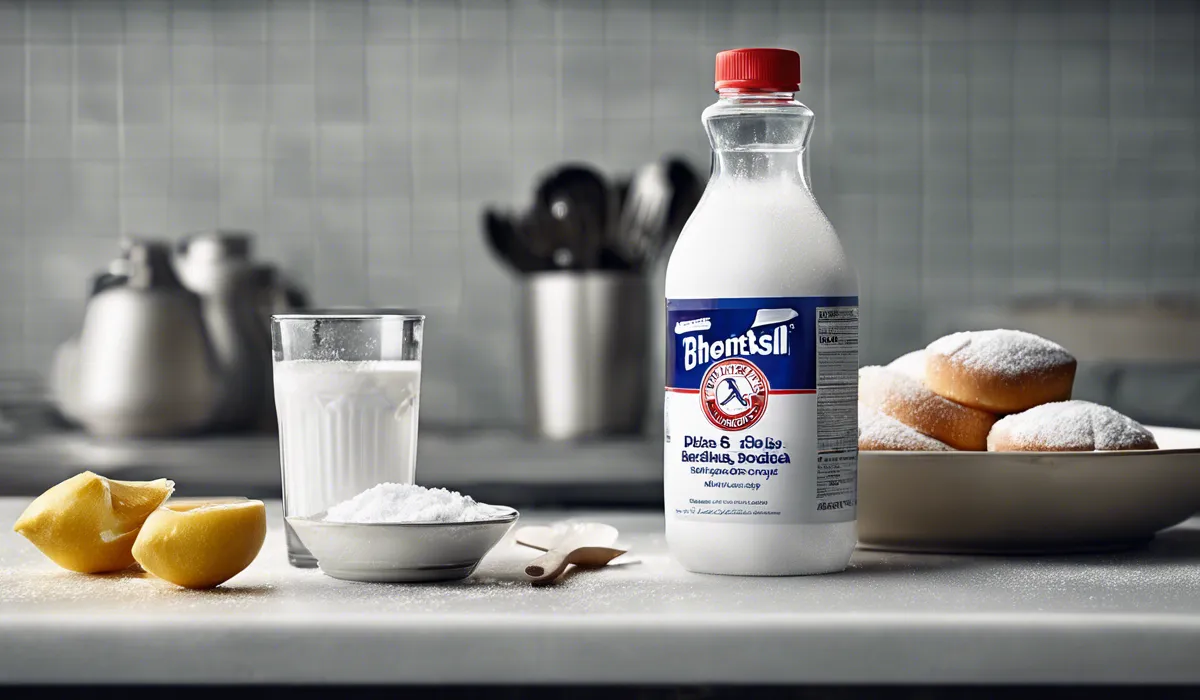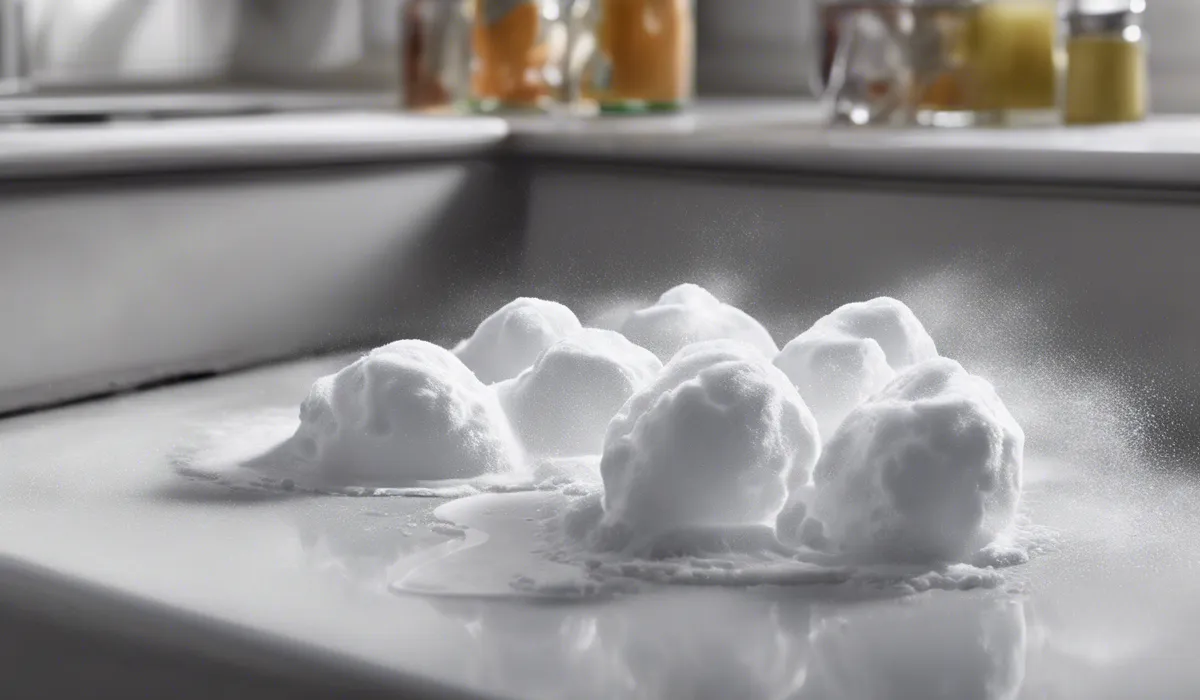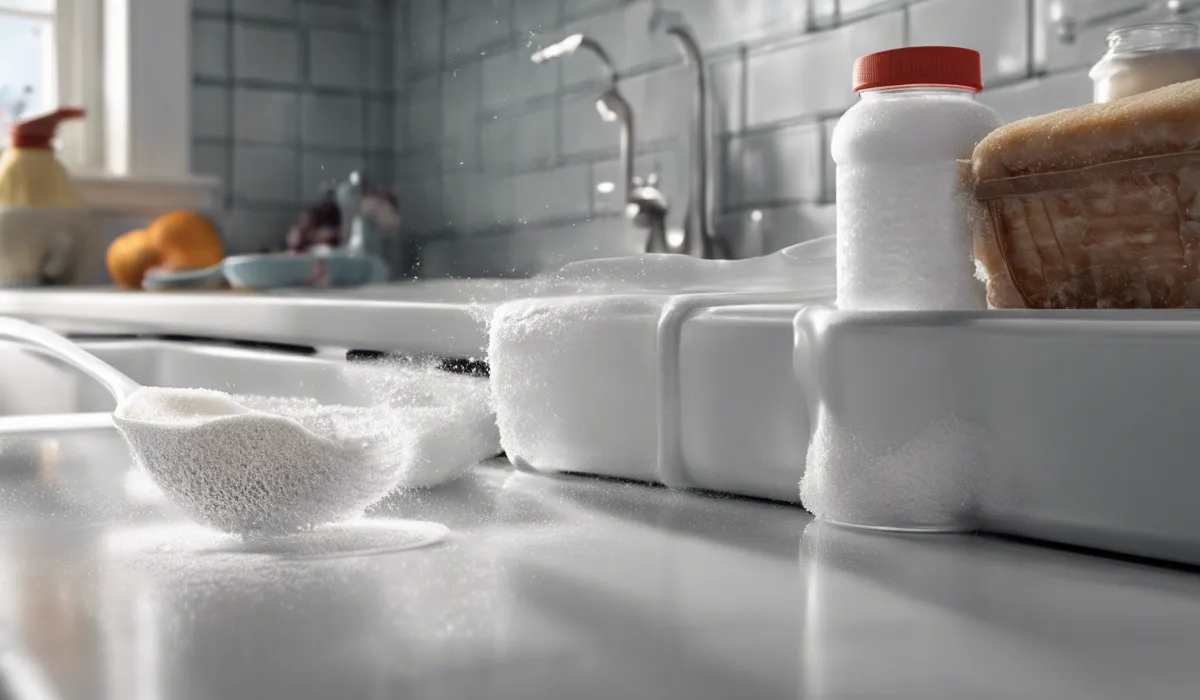Does Baking Soda Damage Dishwasher? Myths Debunked!
Baking soda, when used in moderate amounts, does not damage a dishwasher. It’s a mild alkaline substance that can help remove odors and soften water. However, excessive use can lead to a buildup that may clog the dishwasher’s drainage system. Always use according to guidelines.
The Chemistry of Baking Soda and Its Impact on Dishwashers

Understanding Baking Soda (Sodium Bicarbonate)
Baking soda, known scientifically as sodium bicarbonate, is a white crystalline powder that is naturally alkaline. Its basic nature makes it an effective neutralizing agent for acids.
When baking soda dissolves in water, it releases sodium and bicarbonate ions. These ions play a crucial role in softening water and removing odors, making baking soda a popular household cleaner.
Interaction with Water and Detergent
When baking soda mixes with water, it dissolves and reacts mildly with other chemicals present.
In the case of dishwasher detergent, which often includes various enzymes and other cleaning agents, baking soda can enhance cleaning efficiency by softening the water, which helps the detergent work better.
However, the chemical reaction is generally mild, without producing harmful effects.
The Effect of pH Levels on Dishwasher Components
The alkaline nature of baking soda can influence the pH balance of the water inside your dishwasher. Most dishwashers are designed to operate with a certain pH level.
Baking soda can help maintain a pH that is gentle on dishes and glassware, reducing the likelihood of etching or damage.
However, it’s important to keep this balance since too high of a pH could potentially affect the dishwasher’s interior and components over time.
Potential Risks of Using Baking Soda in Dishwashers

Abrasion and Potential Damage
Although baking soda is a mild abrasive, it is generally safe for most surfaces. The concern arises when it is used in large amounts or too frequently, which could potentially scratch glassware or plastic components within the dishwasher.
It is always best to use baking soda sparingly to avoid any possibility of abrasion.
Seals and Gaskets: The Hidden Victims
The seals and gaskets in your dishwasher are essential for preventing water leaks. While baking soda is not corrosive, excessive use could dry out these rubber components, leading to cracks or deterioration.
Maintaining the integrity of seals and gaskets is crucial for the proper functioning of your dishwasher.
Plumbing Interactions and Clogs
Baking soda can clump and solidify, especially when mixed with residual fats and oils present in dishwashers. This can lead to clogs in the plumbing, which can be a challenging and costly problem to fix.
To prevent this issue, it is essential to use baking soda in recommended quantities and ensure it is thoroughly dissolved.
Long-Term Effects on Dishwasher Lifespan
Consistent use of large amounts of baking soda could potentially affect the longevity of your dishwasher.
Over time, the buildup of baking soda residue might lead to inefficiencies in the cleaning process and can strain the dishwasher’s motor and filters.
It is vital to consider the long-term effects before making baking soda a regular part of your cleaning routine.
Safe Usage Guidelines and Alternatives

Recommended Quantities for Cleaning
To safely incorporate baking soda into your dishwasher cleaning routine, use small amounts.
A quarter to a half cup of baking soda sprinkled on the bottom of the dishwasher or added to the detergent can help with tough stains and odors. Always ensure that you’re not overdoing it to avoid negative side effects.
Tips to Avoid Damage While Using Baking Soda
When using baking soda, make sure it’s thoroughly dissolved in water to prevent any granules from scratching surfaces. Run your dishwasher on a hot water cycle to enhance the solubility of baking soda.
Avoid mixing it with acidic cleaners, as this could neutralize its effectiveness and release carbon dioxide gas, which doesn’t contribute to the cleaning process.
Cleaning Alternatives for Dishwashers
If you’re looking for alternatives to baking soda for cleaning your dishwasher, consider using vinegar or a commercially available dishwasher cleaner.
These products are designed to be safe for your machine and can effectively remove grime and odors. Always follow the manufacturer’s instructions for the best results.
Adhering to Manufacturer’s Instructions
One of the most important aspects of dishwasher maintenance is adhering to the manufacturer’s instructions. This includes using recommended detergents, cleaners, and following specific guidelines for cleaning and maintenance.
Not only does this help ensure the longevity of your dishwasher, but it also keeps your warranty valid, which could save you money in the event of a malfunction.
FAQs About Baking Soda and Dishwashers
Can baking soda damage my dishwasher?
No, baking soda does not damage a dishwasher when used in moderation as it is a mild alkaline substance.
Is it safe to use baking soda for cleaning my dishwasher?
Yes, it is safe to use baking soda for cleaning your dishwasher to help remove odors and soften water.
How much baking soda is considered excessive for a dishwasher?
There isn’t a specific measurement for excessiveness, but it’s important to follow the manufacturer’s guidelines or use small amounts to avoid clogging the drainage system.
Can baking soda be used to deodorize a dishwasher?
Yes, baking soda can be effectively used to deodorize a dishwasher.
What are the consequences of using too much baking soda in my dishwasher?
Excessive use of baking soda in a dishwasher can lead to a buildup that may clog the dishwasher’s drainage system.
Final Thoughts
Baking soda is safe for dishwashers when used judiciously. Its mild alkalinity can deodorize and aid in water softening without causing harm.
However, overuse might lead to clogs in the drainage system. Adherence to usage recommendations is essential to prevent any potential issues.





